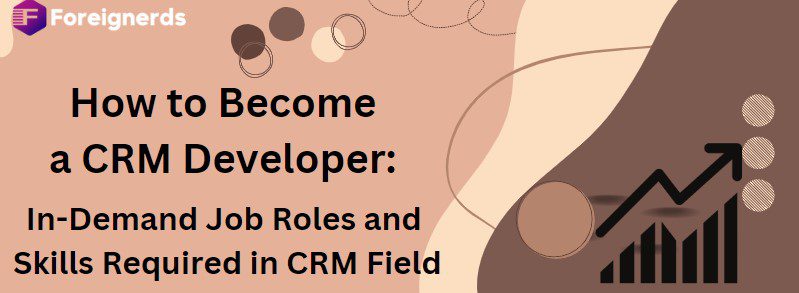- Home
- B2B Companies
- How to Become a CRM Developer:...

In today’s digital age, Customer Relationship Management (CRM) has become a crucial part of businesses across industries. As a result, the demand for skilled CRM developers is on the rise. If you aspire to become a CRM developer, this article will guide you through the in-demand job roles and essential skills required to excel in this dynamic field.
Before delving into the specific skills, let’s have a clear understanding of what a CRM developer does. A CRM developer is responsible for designing, customizing, and maintaining CRM systems to meet the unique needs of an organization. They play a pivotal role in optimizing customer data management, improving sales processes, and enhancing customer interactions.
To embark on a successful career as a CRM developer, you should be familiar with various job roles associated with this field:
Now that you’re familiar with the job roles, let’s explore the essential skills that will set you on the path to success as a CRM developer:
A strong foundation in programming languages like Java, C#, or Python is crucial for CRM development. These languages are often used to customize CRM systems and create plugins.
You must become proficient in popular CRM platforms like Salesforce, Microsoft Dynamics, or HubSpot. Each platform has its unique features and tools that you’ll need to master.
CRM systems rely on databases to store and retrieve customer data. Proficiency in database management, including SQL, is essential to ensure data accuracy and integrity.
CRM customization often involves web development tasks. Knowledge of HTML, CSS, and JavaScript can be beneficial for creating user-friendly interfaces and integrating web applications.
CRM developers frequently encounter complex challenges. Being able to analyze problems, devise solutions, and troubleshoot issues efficiently is a valuable skill in this field.
Understanding the business processes and objectives of your organization or clients is vital. It helps you tailor CRM solutions to meet specific business needs.
Effective communication is key when working with cross-functional teams, clients, or end-users. Clear and concise communication ensures that everyone understands the CRM changes and enhancements.
Transitioning into a CRM developer career requires dedication and continuous learning. Here are some steps to get started:
Becoming a CRM developer is an excellent career choice in today’s technology-driven business landscape. By acquiring the necessary skills, staying updated, and continuously improving, you can thrive in this in-demand profession. Remember, success in CRM development is not only about technical expertise but also about effectively solving business challenges and improving customer relationships.
© 2013 - 2024 Foreignerds. All Rights Reserved